|
Shellfish are a highly nutritious and a sustainable protein source, and provide livelihoods for people in numerous rural regions all across the globe. The UK alone imports over £700 million of shrimp each year. Yet shrimp farming is currently highly inefficient: globally, nearly 40% of shrimp are lost due to reasons that include extreme weather, disease and supply chain issues. Such wastage results in reduced profits for farmers, increased prices for consumers and greater environmental impacts. A project launched by the STFC Food Network+ (SFN) is working to make the Indonesian shrimp farming industry more efficient and sustainable, using digital technology and new business models. Mapping the challenges “There are many new technologies that could really benefit small scale shrimp farmers in Indonesia” says Miying Yang (University of Exeter). “But to work out the best changes to introduce, we first needed to understand the different stakeholder needs and the realities of the industry that these interventions would have to work in.” To explore the challenges facing the shrimp farming industry and the potential for digital solutions, Miying and her colleagues* conducted a feasibility study, funded by an SFN Scoping Project award. The team travelled to Indonesia in July 2019 to host a workshop which brought together stakeholders from across the entire shrimp value chain. This included shrimp farmers, distributors, farming associations, retailers and government officials. The format of the event was structured on a framework Miying developed during her PhD research on developing methods to analyse and assess sustainability metrics from life cycle and multi-stakeholder perspectives. “The atmosphere was outstanding – much better than I expected it would be. We even ended up being featured in the local newspaper!” says Miying. Thanks to support from interpreters from a local university, the research team could involve all the participants, including those who spoke no English, and present the aims of the project before the discussions began. 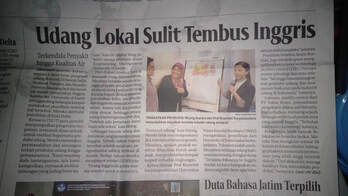 The research team were even featured in the local newspaper! (Credit: Miying Yang) The research team were even featured in the local newspaper! (Credit: Miying Yang) Seventy different industry challenges were identified, which the team grouped into twelve themes. The stakeholders were then asked to rank these themes according to their importance and how feasible they felt it would be to tackle them. “The final results indicated that the most impactful issues to target included fluctuating water conditions, disease and cannibalism, where the shrimp feed off each other” Miying says. This information allowed the team to develop a proposal and secure a £50,000 grant from the Engineering and Physical Sciences Research Council’s Internet of Food Things Network+ to launch a full-scale project to tackle these issues. Predictive assistance in aquaculture management Drawing on the key challenges identified by the pilot project, Miying and her colleagues are focusing on an internet of things (IoT)-enabled system to automatically monitor different qualities of the water in shrimp farms. The team are working on a prototype model where off-the-shelf water sensors collect real-time data on parameters such as dissolved oxygen, salinity and water temperatures. The data is then automatically sent to an IoT Cloud database. These datasets will allow big data analytics to develop predictive algorithms for how conditions may change in the future. The ultimate aim is to integrate this with a web-based platform or smartphone app that can send alerts directly to individual farmers. “This predictive assistance will allow farmers to make decisions on a scientific basis, rather than relying on their instincts” says Miying. “For instance, such an app could send notifications about when to feed the shrimp since this needs to be finely balanced. If they are fed too much, this wastes feed, but if they are fed too little, they start to eat each other.” Besides helping farmers to take preventative action to reduce death and disease, this could also help them to minimise their environmental impacts through reducing inputs of feed and chemicals. Digitally-enabled business models and transparent supply chains Meanwhile, the team are also considering how to tackle the inefficiencies within the shrimp supply chain that reduce the overall quality and add to the cost of the product for the consumer. “Farmers, distributors and retailers across the Indonesian shrimp supply chain are not working collaboratively or sharing data. But there would be real benefits to all if they could be linked in a fully safe, traceable system using digital technologies” says Miying. Fully digitalised supply chains could allow demands to be communicated to suppliers and distributors more quickly, reducing the time shrimp are kept in storage. Greater transparency could also reduce the cost of assessing shrimp to check it meets food standards requirements – which can be an expensive burden for small-scale farmers. According to Miying, introducing such a system is not limited by technology, but by more fundamental barriers including governance, data trust, and stakeholders’ willingness to participate. “People need to see the tangible benefits of sharing their data for this to work. We are looking for funding opportunities to work on building a technological prototype for a fully traceable supply chain.” ************ Having worked mainly in manufacturing in the past, the project has immersed Miying into a totally new world for her in the food sector. “It has been really exciting for me to apply my skills to solve different problems and find innovations that help industries to be more sustainable and circular” she says. But having grown up in Zhejiang, the coast of South East China, she has always had a love of seafood: “Especially fried rice with shrimp!” You can learn more about the project through a short video at https://vimeo.com/368769846 *The project team includes Dr Miying Yang (University of Exeter), Dr Martino Luis (University of Exeter), Dr Jens Jensen (STFC), Professor Peter Ball (University of York) and Rakesh Nayak (LeanSig Ltd; STFC Food Network+ Liaison)
0 Comments
Your comment will be posted after it is approved.
Leave a Reply. |
AuthorJune 2024 - Archives
June 2024
Categories |
- Home
- Webinars and Events
- About the SFN+
- News
- Blog
- Expert Working Groups
- Funding
-
Publications
- Bioeconomy positioning paper
- SFN+ 5th Annual Conference
- OMM Policy Report
- ‘Multi-Stakeholder International One Day Workshop on Organic Agri-Food Value Chains for Net Zero’ Report
- SFN 2050 UK Net Zero Food report
- Sustainable Cold Food Chain Booklet
- Food Sensing Technologies for Safe and Nutritious Food
- Sustainable urban and vertical farming
- Projects
- Join/Contact Us
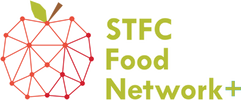
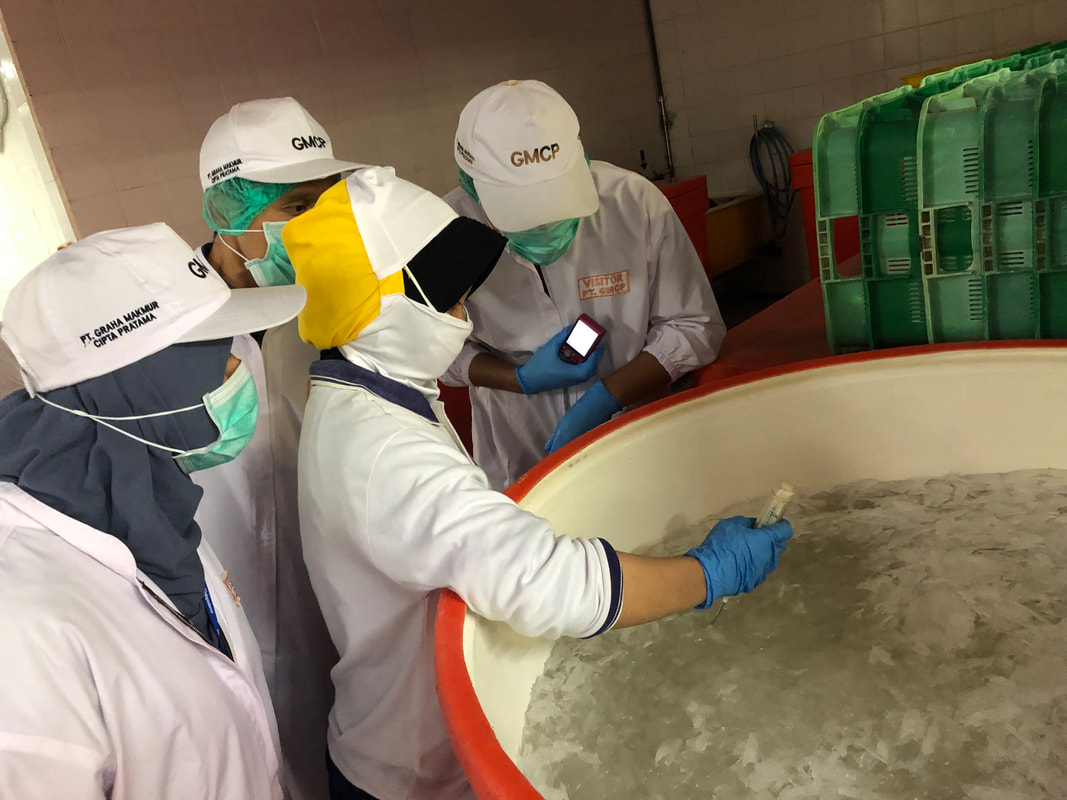
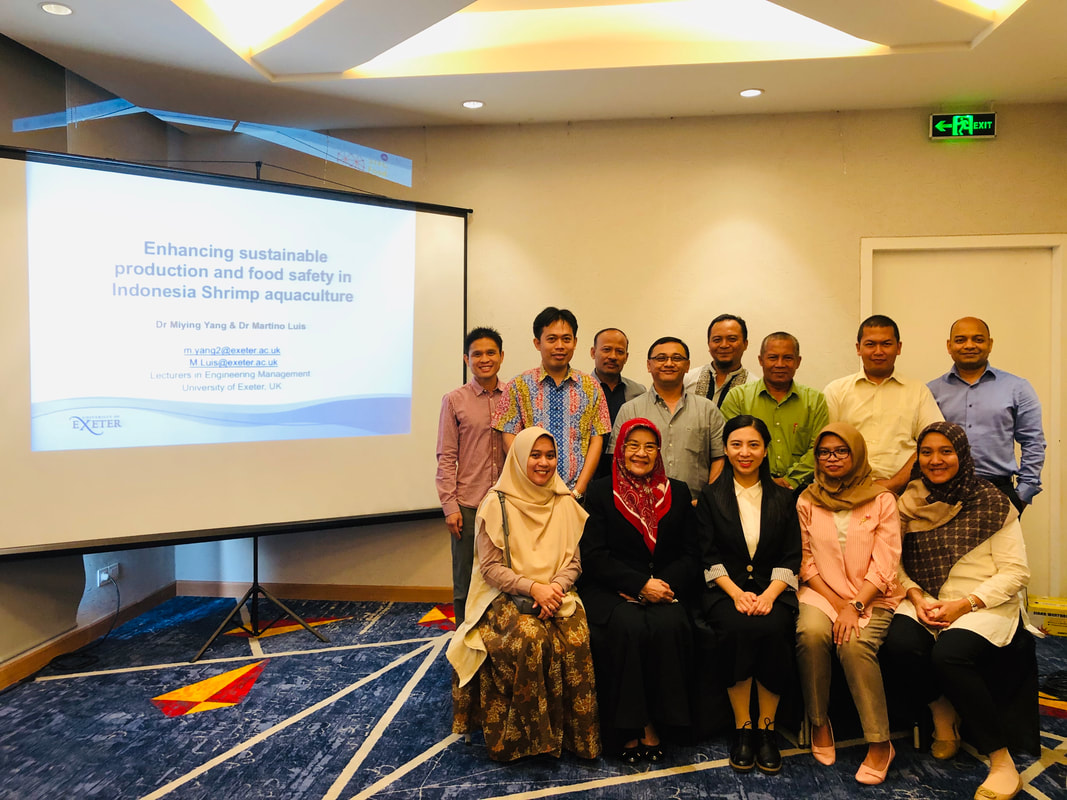
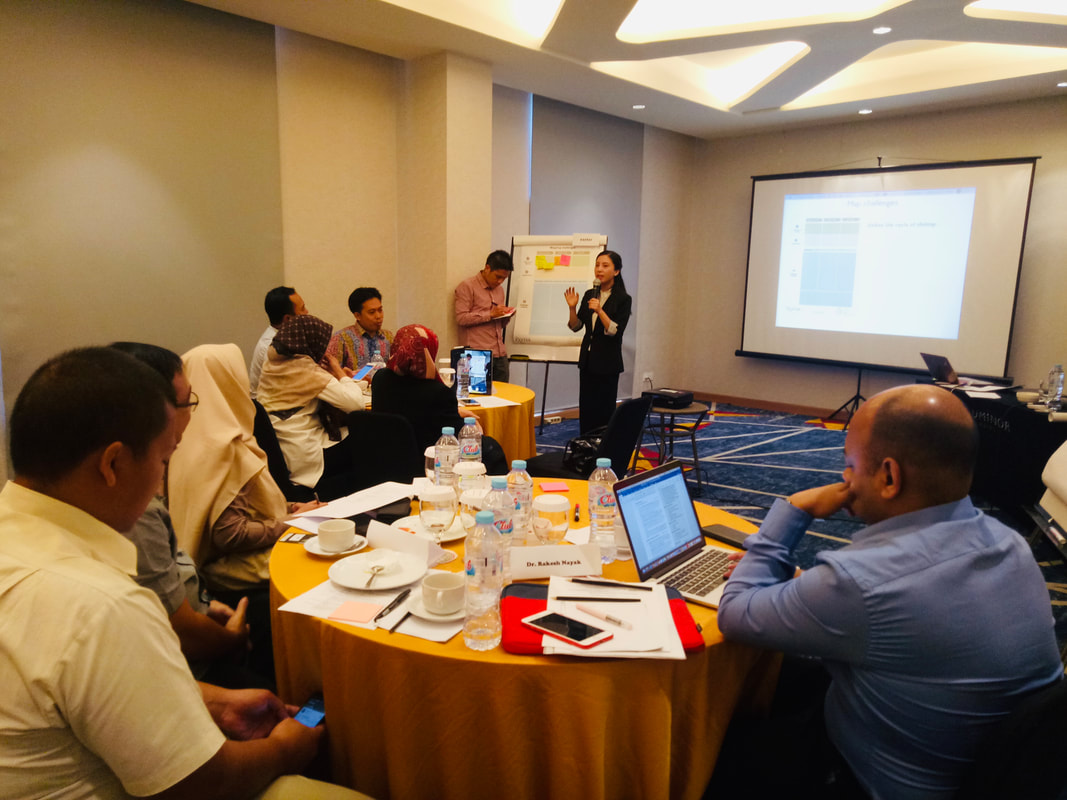
 RSS Feed
RSS Feed


